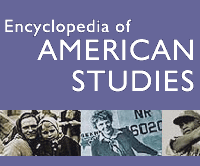
About
American Studies has its roots in efforts in the early twentieth century to interpret American culture and society holistically. As the field or discipline has evolved, practitioners frequently mentioned stylistic, organizational tendencies such as an integrative view of "seeing things whole," "examining the big picture," or thinking thematically and critically; orientation toward addressing problems, patterns, and issues of American society in "intersectional ways" or "multiple dimensions," including a variety of non-traditional evidence in visual and material culture; considering the influence, often overlapping, of local, regional, national, and global contexts, particularly in the production of folk and popular expressive cultural forms; an applied project as sociocultural criticism to reform America or convey intellectual perspectives to a wider public and professions in a variety of institutions (e.g., museums and heritage organizations, government, community and cultural agencies, K-12 education, medical, business and legal professions); and a bridge (or the frequently used metaphor of "crossroads") between, and comparative project of, humanities and social sciences, and sometimes science and technology, focused on a crucial, and complex, geopolitical area, and idea, of the world. In sum, as expressed in an entry in the encyclopedia, American Studies identifies and interprets themes, patterns, trends, behaviors, traditions, and ideas that characterize the United States as a nation, an experience, a rhetoric, and peoples-past, present, and future; at home and abroad (or in counter-conceptualizations transcending borders); and in thought and action. In short, as a disciplinary as well as multidimensional intellectual enterprise, American Studies is uniquely constructed to seek an understanding of Americanness.